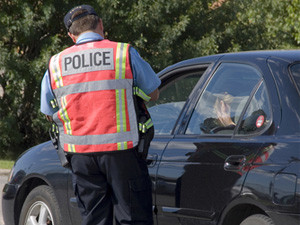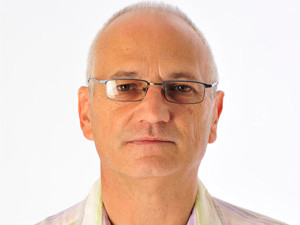
The implementation of the Administrative Adjudication of Road Offences (Aarto) Act could see traffic offenders work in government mortuaries and hospital trauma wards for victims of road crashes, as part of a rehabilitation programme.
This was said by minister of transport Dipuo Peters, at the road safety summit, on Friday. Peters said this was one of the amendments published in the latest draft Aarto Amendment Bill.
According to Justice Project SA (JPSA) chairman Howard Dembovsky, the enforcement of rehabilitation programmes will possibly be linked to the system's demerit points. With the Aarto system, drivers gain demerit points when they commit traffic offences and this will be reflected on the National Contravention Register on eNatis.
Dembovsky says the rehabilitation programme could be compulsory or voluntary, and this should be clearly indicated in the Aarto regulations. He explains that a driver who has committed an infringement could, for example, choose to pay the fine and be subjected to the demerit points related to the seriousness of the infringement, or choose to undergo community service as part of a rehabilitation programme. "It is in my opinion useless to impose a fine on a person, because it does not alter their behaviour," he says. "You need to expose people to the consequences of their actions."
The Aarto Amendment Bill was passed through Parliament about 14 years ago, but its introduction has remained limited, because of various administrative issues. The latest confusion created by the Bill centred on the serving of infringement notices by electronic means, including traditional registered mail.
Dembovsky notes the latest draft Aarto Amendment Bill still does not specify exactly what electronic means are proposed. He says Peters mentioned at the summit that most South Africans own a cellphone. "SMS is essentially an electronic means of doing something, but the content of an Aarto infringement notice can never be fitted into an SMS. So what relevance does this have? [Peters] perhaps mentioned it because she has been ill-advised. Ministers can only work on information that their staff gives them."
He points out that Peters most likely refers to e-mail when speaking about "electronic means", but reiterated there are a number of difficulties that come with it.

According to Peters, the implementation of the amended Aarto Bill is regarded as high-priority and a vital tool to decrease carnage on South African roads, but specific timelines for the implementation of the Bill have yet to be announced.
Dembovsky says public comment has been received on the latest version of the Bill, and it now has to go to Parliament. He is also, however, in the dark as to when this will happen or when government hopes to have the Bill finalised. "Firstly, the Bill still needs be fixed, as far as I am concerned. It is still not right. Simultaneously, the regulations need to be sorted out as it has a lot of bearing on how the Bill will be implemented."
Deadly roads
Meanwhile, as SA is celebrating transport month, the high number of road deaths in the country has again been highlighted by an interactive "Roads kill map" developed by the Pulitzer Centre. The map uses the latest World Health Organisation statistics (number per capita road deaths in each country) and presents it on an interactive online map.
According to the statistics, SA's roads are ranked as the seventh deadliest in the world, with 31.9 deaths for every 100 000 inhabitants. The map also shows a score on enforcement of traffic regulations, which is a dismal one out of 10 overall for SA. This enforcement score includes 2/10 for drunk driving, 1/10 for wearing a seatbelt and 3/10 for speeding.
"The problems on our roads have arisen from poor traffic policing," says Dembovsky. He notes that 80% of traffic policing in SA depends on speed cameras and very little in person policing is done. "So what is going to happen if someone's licence gets taken away for repeat infringements? He is just going to keep on driving without a licence," he says.
"People must stop viewing Aarto as the big bad wolf and view it as something that is going to save some lives."
Share